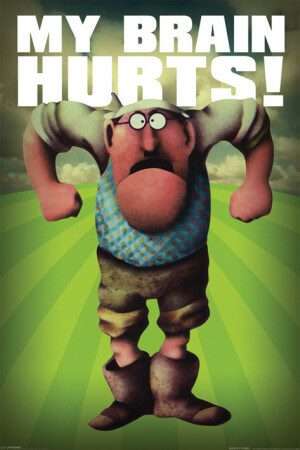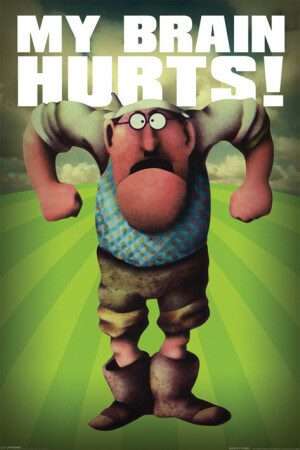I’ve always been bad with names. This is the kind of thing people hate to hear because they think it’s code for “I’m above remembering your name.” But I am not that cool. In fact, I am not cool at all. I really do want to remember your name! I want to remember everyone’s name!
I’m just so pumped to meet a new person that as soon as we start shaking hands, my brain literally shuts off. I can always tell the second it happens: it’s kinda like a golden retriever whose owner suddenly throws him a ball. And then, the moment’s passed. It’s too late. You’ve just told me your name and I’ve just forgotten it.
Either way, it’s pretty embarrassing.
Trust me, I’ve tried saying your name in my head or making a lasting connection to some article of clothing you’re wearing, but the more I chase your name, the more it eludes me.
Plus, it’s getting worse as I’ve gotten older. Am I losing my brain?
Lately, I’ve been feeling like I might be a total lost cause, but according to a new paper in Psychological Science, there could be some light at the end of the tunnel. While common knowledge has to lead us to believe that cognitive decline is just a normal part of the aging brain, two postdoctoral fellows are redefining the conversation.
After studying a ton of cognitive test scores from participants of all ages, Joshua Hartshorne of MIT and Laura Germine of Harvard and Massachusetts General Hospital have found that the huge split in age-related cognition - fluid (in the young) versus crystallized (in the old) - means that certain parts of our brain mature and “ripen” at different parts of our lives.
Whew.
For example, our brain’s processing speed peaks in our 20’s. Simply put, our ability to quickly recall names/faces/images is strongest when we’re young. As a high schooler, I could cram months' worth of American History into two days of studying and ace the final exam, no problem. And though I’ve never been amazing with names, I didn’t have to be. I knew everyone in my small graduating class of 120. How many people have I met in the years since? Hundreds? Thousands?
In short: though we reach our peak in young adulthood, it is not human cognition as a whole that begins to decelerate from this point on, it is simply our memory and word retrieval abilities. We may not be able to quite recall that ski trip in '95, not because our brains are slowing down, but because they are full of so much more knowledge, memories, and experience.
On the flip side, those same researchers also studied results from the Reading the Mind in the Eyes test, in which participants were told to look at pictures of strangers’ eyes on a computer screen and determine their mood.
Folks in their 40’s and 50’s nailed this one by a landslide. They found that although an older brain does move slower than its younger counterpart, it also allows one to read other people and situations a heck of a lot better.
On top of that, our aging brain still remains incredibly accurate. We just can’t recall information as fast as we used to. Looking at the big picture: getting older enables us to make informed decisions both based on the wealth of knowledge we’ve accumulated and our ability to understand how those decisions impact others in a larger capacity.
So, yes, I may have to run to Facebook to double-check your name. But, as I get older, I can more easily intuit what you, my new friend, might need. A hug? A whiskey sour? To chat about your grandma?
And you won’t have to tell me.



